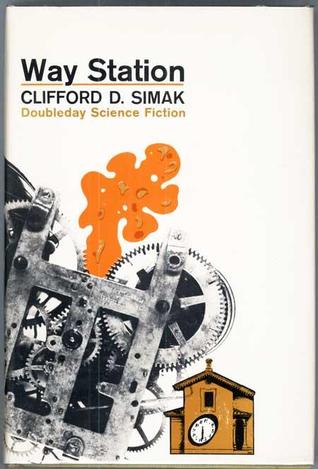Hugo Awards: Spinning Silver
Spinning Silver is a standalone fantasy novel by Naomi Novik and it’s been nominated for this year’s Hugo Awards. A previous novel, Uprooted, was also nominated a few years ago, and I quite enjoyed it (I was one of the ones nominating it). Alas, it lost out to the Jemison juggernaut. This year’s entry seems like it could fare better.
In a small village, a young Jewish girl named Miryem lives with her father, a particularly ineffectual money-lender who is barely able to keep the family afloat. When her mother falls ill, Miryem takes up the mantle and starts collecting debts from their neighbors, who had clearly been taking advantage of her father’s incompetence. It turns out that she has quite a knack for it. She’s so adept that she gains a reputation of being able to turn silver into gold, which draws the attention of the Staryks, wintery fae folk who live in the forest and torment the locals. The icy Staryk king leaves a bag of silver for Miryem, insisting that she turn the silver into gold. She takes the silver to a jeweler who fashions it into a ring, which they sell to the duke for gold. Unphased, the Staryk king continues to ask Miryem to convert silver into even more gold two more times, which results in a necklace and crown, both sold to the same duke. The duke hopes the fancy jewelry will attract the Tsar to marry his daughter Irina, which he does (though not apparently because of the jewelry).
Having converted ever increasing amounts of silver into gold, the Staryk king reluctantly pledges to marry Miryem, making her the queen of his ice kingdom. For her part, Miryem finds that in the Staryk realm, she is actually able to magically transform silver into gold, but she’s obviously not happy being married to a monster, and seeks escape. Meanwhile, Irina has married the Tsar, but found him oddly disinterested. Her jewelry, made from Staryk silver, has magical powers that let her walk through mirrors into a snowy landscape. She quickly realizes that the Tsar is possessed by some sort of fiery demon that wants to literally consume her, so she uses her jewelry to hide in the mirror, thus foiling the fire demon.
So Miryem and Irina are both stuck in unwanted marriages to minor deities, and must find a way to extricate themselves from the situation, all while protecting the common folk from the dangerous conflict that’s brewing. It’s a song of ice and fire, if you will, but much more compact (and less grim).
If some of the plot details sound a bit familiar, that’s because Novik has based a fair amount of this story on European folklore, particularly the story of Rumpelstiltskin, but with other legends like the Chernobog weaved in for flavor and depth. And of course, this is obviously a much expanded and more detailed story than Rumpelstiltskin (which is probably shorter than this review).
As with Novik’s previous Hugo nominee, Uprooted, this is a standalone novel, which is a breath of fresh air in the series-laden fantasy genre. I think I may like that earlier book a bit better, but this one will clearly do well on my Hugo Novel ballot this year. It’s a good story, told well.
I was quite pleased with the novel, but I do have a few minor complaints. One is that the grand majority of the novel is told in first-person, but switches viewpoints seamlessly, meaning that it takes a minute before you realize which character you’re with. Also, while this is a standalone, the pacing does flag a bit in the middle, especially once you glean the general direction of the various plotlines. The two main threads, with Miryem and Irina, fare pretty well, but there is a third thread featuring a woman named Wanda, who Miryem had hired as an assistant (Wanda’s labor is basically paying off her drunken father’s debts). Wanda’s story generally drags a bit, and doesn’t quite have the heft of Miryem and Irina’s predicament (it shares thematic similarities, but those events end up feeling a bit redundant). It takes a bit too long for Novik to pull the various plot threads into a cohesive whole. But tighten those threads she does, and in pretty satisfying and sometimes unexpected ways. The ending left me fully satisfied, though there is one odd grace note, a romantic pairing that seemed like it was a bit too abrupt (and probably could have been seeded better earlier in the story). All in all, these flaws are easily overlooked, especially in a genre known for expansive bloat.
The story carries with it much in the way of thematic heft, touching on economics, the power dynamics of marriage, climate-change, and anti-semitism (amongst other ideas), but doing so in a largely organic way that emerges from the story. Nothing feels bolted-on or out of place. Likewise, there’s no hectoring lectures here. But the themes are present and allow for thought and exploration.
So it’s a fun little fantasy story, well written and satisfying, and as such, I’m expecting it to be near or at the top of my Hugo ballot. I still have to finish two additional nominees, but from what I’ve read of those so far, I don’t see anything overtaking this one.
